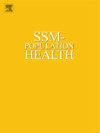Annual medical expenditure associated with short sleep in China: estimates from a nationally representative sample
IF 3.1
2区 医学
Q1 PUBLIC, ENVIRONMENTAL & OCCUPATIONAL HEALTH
引用次数: 0
Abstract
Background
Short sleep is associated with increased morbidity risks and therefore can induce substantial medical costs. This study estimates the total and out-of-pocket amount of medical expenditure associated with short sleep among Chinese adults.
Methods
We used nationally representative data from the China Family Panel Studies (CFPS) in 2018. Two-part regression models were used to examine the associations between short sleep and an individual's annual total or out-of-pocket medical expenditure. Counterfactual estimations were used to estimate individual and population medical cost due to very short sleep.
Results
Individuals with very short sleep duration (<6h for 18–64 years; < 5h for 65+ years) were more likely to have medical expenditure (OR = 1.38, 95 % CI: 1.23–1.56), and when they did, they spent 1822.80 CNY more than those sleeping recommended hours (7–9h for 18–64 years; 7–8h for 65+ years). The corresponding estimates for out-of-pocket medical expenditure were 1.40 (OR, 95 % CI: 1.24–1.58) and 1138.66 CNY. The estimated cost of very short sleep contributed to 2.73 % of the expected total medical expenditure and 2.74 % of the expected out-of-pocket medical expenditure for an average person. The share of medical spending due to very short sleep is higher in groups who were female, divorced/widowed, less educated, rural, and working on farming jobs. The total national medical expenditure associated with very short sleep in 2018 was estimated to be 87.85 billion CNY (13.52 billion USD), including 55.25 billion CNY (8.50 billion USD) out-of-pocket expenditure (62.89 %).
Conclusions
Short sleep was associated with increased total and out-of-pocket medical expenses in China. Our results have implications for public advice to get sufficient sleep, as it could help reduce medical expenditure, especially for disadvantaged groups.
中国与短睡眠相关的年度医疗支出:来自全国代表性样本的估计
背景:睡眠不足会增加发病风险,因此会导致大量的医疗费用。本研究估计了中国成年人与睡眠不足相关的医疗支出总额和自付金额。方法:我们使用了2018年中国家庭面板研究(CFPS)的全国代表性数据。两部分回归模型用于检验短睡眠与个人年度总医疗支出或自费医疗支出之间的关系。使用反事实估计来估计由于睡眠时间过短而导致的个人和人群医疗费用。结果:睡眠时间非常短的个体(18-64岁6小时;& lt;65岁以上睡眠时间为5小时的人更有可能有医疗支出(OR = 1.38, 95% CI: 1.23-1.56),当他们有医疗支出时,他们比推荐睡眠时间(18-64岁为7 - 9小时;7 - 8小时(65岁以上)。相应的自付医疗费用估计为1.40元(OR, 95% CI: 1.24-1.58)和1138.66元。对于普通人来说,睡眠时间过短的估计成本占预期总医疗支出的2.73%,占预期自付医疗支出的2.74%。在女性、离婚/丧偶、受教育程度较低、农村和从事农业工作的人群中,因睡眠不足而导致的医疗支出比例更高。据估计,2018年全国与极短睡眠相关的医疗支出总额为878.5亿元(135.2亿美元),其中自付费用为552.5亿元(85亿美元),占62.89%。结论中国睡眠不足与总医疗费用和自费医疗费用增加有关。我们的研究结果对公众建议充足的睡眠有启示,因为它可以帮助减少医疗支出,特别是对弱势群体。
本文章由计算机程序翻译,如有差异,请以英文原文为准。
求助全文
约1分钟内获得全文
求助全文
来源期刊

Ssm-Population Health
PUBLIC, ENVIRONMENTAL & OCCUPATIONAL HEALTH-
CiteScore
6.50
自引率
2.10%
发文量
298
审稿时长
101 days
期刊介绍:
SSM - Population Health. The new online only, open access, peer reviewed journal in all areas relating Social Science research to population health. SSM - Population Health shares the same Editors-in Chief and general approach to manuscripts as its sister journal, Social Science & Medicine. The journal takes a broad approach to the field especially welcoming interdisciplinary papers from across the Social Sciences and allied areas. SSM - Population Health offers an alternative outlet for work which might not be considered, or is classed as ''out of scope'' elsewhere, and prioritizes fast peer review and publication to the benefit of authors and readers. The journal welcomes all types of paper from traditional primary research articles, replication studies, short communications, methodological studies, instrument validation, opinion pieces, literature reviews, etc. SSM - Population Health also offers the opportunity to publish special issues or sections to reflect current interest and research in topical or developing areas. The journal fully supports authors wanting to present their research in an innovative fashion though the use of multimedia formats.
 求助内容:
求助内容: 应助结果提醒方式:
应助结果提醒方式:


